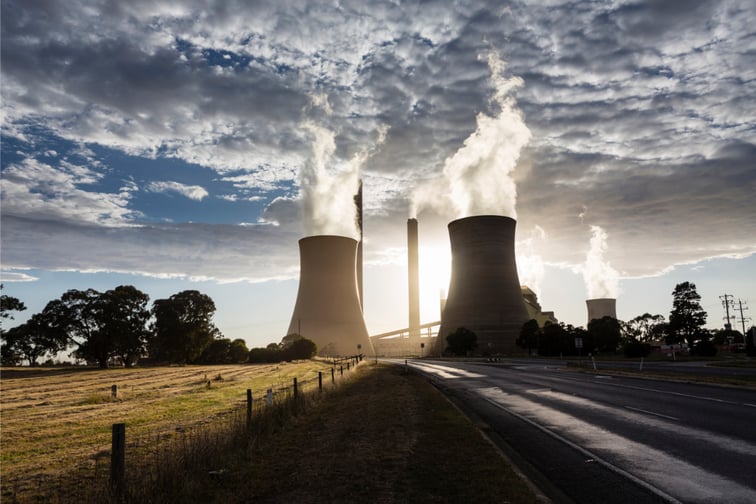

Insure Our Future, the environmental campaign group, has published commercial in confidence data that shows the names of insurers and the coal power projects they are underwriting. The report could be an indication that insurers may have increasing challenges hiding their coal commitments behind commercial in confidence information.
“Commercial confidentiality usually makes it impossible to identify the insurers of coal or any other projects,” said the report, The Coal Insurers of Last Resort.
An inquiry by a member of Korea’s parliament revealed the information, the report said. The member, Soyoung Lee, provided documents to Insure Our Future.
“This briefing paper presents a unique snapshot of the insurers which are currently underwriting the coal power projects of the Korean power utility KEPCO,” said the report, which details KEPCO’s coal power projects across Asia.
The names include QBE, Allianz, Liberty Mutual, Berkshire Hathaway, AIG and other insurers with a presence in Australia.
“Far too many insurance companies – including big public brands like Hannover Re, QBE, Helvetia and SCOR – continue to insure the operation of coal utilities which have no plans to phase out fossil fuels,” added the report’s authors.
Insurance Business approached QBE, the only Australian headquartered global insurer in the report for comment. The insurer wouldn’t answer questions but provided a short statement.
“QBE is committed to its net-zero commitments across operations, investments and underwriting by 2050. We do not comment on specific projects or customers,” said a QBE spokesperson.
The company’s website says it reports on these commitments “in line with the Financial Stability Board’s Task Force on Climate-related Financial Disclosures (TCFD) recommendations.” Those disclosures can be found in its annual report.
QBE stopped insuring new coal projects in 2019 and, according to its own policies, is phasing out the insurance of existing coal operations by 2030.
The data in the campaigners’ report indicates that QBE’s insurance coverage for a power plant in Vietnam called Nghi Son 2 was organized in 2018, the year before QBE stopped insuring new coal projects. The report also shows that QBE’s insurance coverage for a second coal power plant in the Philippines is due to expire this month.
“These contracts undermine QBE’s stated support for the climate goals of the Paris Agreement and net zero emissions by 2050,” said Pablo Brait, Melbourne based campaigner for Market Forces, a group who work to expose institutions involved in environmentally destructive projects.
“QBE is already lagging behind its peers which are denying insurance to all new fossil fuel production projects,” added Brait.
Other major Australia headquartered insurance companies have their own climate goals.
In 2019, Suncorp announced it would phase out its underwriting exposure to thermal coal by 2025.
Insurance Australia Group (IAG) has stated its commitment to cease underwriting entities predominantly in the business of extracting fossil fuels and power generation from fossil fuels by 2023.
Suncorp and IAG are not mentioned in Insure Our Future’s report.
Allianz, the global insurer with a strong Australia presence, is listed in the report as the biggest insurer of the Nghi Son 2 power plant. Allianz provides US$1,120 million of coverage.
However, in Insure Our Future’s latest ranking of 30 leading insurance companies, Allianz ranked number one for ending fossil fuel insurance, third best for ending fossil fuel investment and second best for other climate policies.
In 2018 – the same year, according to Insure Our Future, that insurance coverage Nghi Son 2 was organized - Allianz stopped investing in and insuring any new stand-alone thermal coal mines or thermal coal generated electricity plants.
In July 2021, Allianz also stopped underwriting dedicated thermal coal infrastructure, including rail services for transporting coal.
KEPCO is the largest electric utility in South Korea. The company operates nuclear, coal, oil, liquified natural gas, hydropower, wind and solar power projects. According to the Insure Our Future report, KEPCO is developing or operating coal and gas power projects in several countries in East and Southeast Asia and the Middle East.
In May, a resolution at QBE’s AGM called on the insurance giant to align its oil and gas underwriting and investment activities with the goals of the Paris climate agreement. The resolution was co-filed by Australian Ethical together with other shareholders co-ordinated by Market Forces.
“QBE has fallen behind peers in the insurance industry in taking action, despite the growing financial impacts of climate change on the industry,” said Stuart Palmer, head of ethics research at Australian Ethical, an investor managing over $6.8 billion.
The resolution was rejected by a majority of shareholders.
